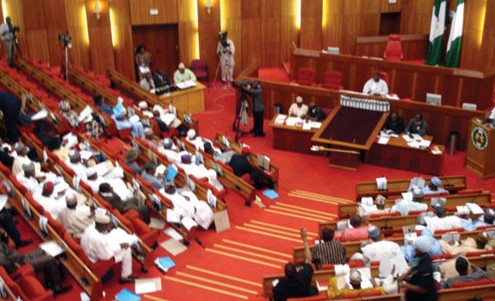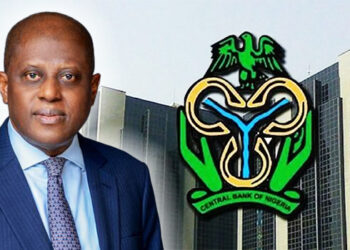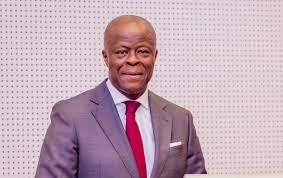Some lawmakers in the House of Representatives say they expect to see an adequate budgetary provision for agriculture, Micro, Small Medium Enterprises (MSMEs), health and education as well as rural development in the 2017 budget proposal which President Muhammadu Buhari intends to present for appropriation today.
President Buhari is being expected to present to the joint session of the National Assembly, a record N7.281 trillion proposed spending, some 20 percent raise from the N6.077 trillion for 2016 fiscal year
MetroBusinessNews gathered that the lawmakers are particularly keen about well thought-out policies in the budget that would ensure the well being of Nigerians, unlike in the last, where budgetary provisions were hardly utilized for the set objectives.
“Basically, we hear of huge sums being allocated to agriculture, but there is need for policies that will drill down the interventions to the man on the street, the peasant farmers, cooperatives, to an average and commercial farmers,” said a lawmaker.
He urged Federal Government to complete most of the ongoing projects such as railway, roads and power projects and initiate new ones that will impact directly on Nigerians across the country especially at the rural areas.
“There are other critical sectors that need intervention like our roads. We also need to complete the rail project from Lokoja to Abuja here, the Kaduna-Abuja is already in place and Kano-Kaduna is already in place. So there is need for a total linkage of our rail system. The government is ready to invest in infrastructure and the health sector,” he added.
The lawmakers expect to see a realistic budget as they emphasized the need for the present administration to streghten institutions and anti-corruption war and fulfill its electoral promises to Nigerian citizens.
“We do not execute budget but the planning of the budget is important. Like what happened in the 2016 budget which has not been fully implemented and as we speak, if care is not taken may not be optimally implemented before the next budget comes on stream.
“So it is important for synergy between both arms of government to have a budget that is workable, implementable and dependent on the resources that are available,”
He also urged Federal Government to do away with policies that are capable of stifling the economy, such as the proposed ban on importation of vehicles through the land borders and exportation of agricultural products and review the Treasury Single Account (TSA).
Another lawmaker also stressed the need for regulatory agencies to conduct regular control of various policies and programmes with the view to check abuses and misappropriation of funds allocated to critical sectors of the nation’s economy.
He also emphasized the need for the Executive and Legislature who represent the 109 senatorial districts and 360 federal constituencies and six geopolitical zones to work harmoniously during the consideration and implementation of the budget.
“With the average population of more than 180 million people, there is need for connectivity, there is need for new reconstruction of our roads. There are roads that were long done before independence that have not been reconstructed like the one traversing between the 9th Mile-Aboh to the North has not been reconstructed since inception till today. So do some other geopolitical zones, so there is need for more new projects. We need to create opportunities for tourism and most importantly we need to invest in our security,” Dennis said.
President Buhari is being expected to present to the joint session of the National Assembly, a record N7.281 trillion proposed spending, some 20 percent raise from the N6.077 trillion for 2016 fiscal year
MetroBusinessNews gathered that the lawmakers are particularly keen about well thought-out policies in the budget that would ensure the well being of Nigerians, unlike in the last, where budgetary provisions were hardly utilized for the set objectives.
“Basically, we hear of huge sums being allocated to agriculture, but there is need for policies that will drill down the interventions to the man on the street, the peasant farmers, cooperatives, to an average and commercial farmers,” said a lawmaker.
He urged Federal Government to complete most of the ongoing projects such as railway, roads and power projects and initiate new ones that will impact directly on Nigerians across the country especially at the rural areas.
“There are other critical sectors that need intervention like our roads. We also need to complete the rail project from Lokoja to Abuja here, the Kaduna-Abuja is already in place and Kano-Kaduna is already in place. So there is need for a total linkage of our rail system. The government is ready to invest in infrastructure and the health sector,” he added.
The lawmakers expect to see a realistic budget as they emphasized the need for the present administration to streghten institutions and anti-corruption war and fulfill its electoral promises to Nigerian citizens.
“We do not execute budget but the planning of the budget is important. Like what happened in the 2016 budget which has not been fully implemented and as we speak, if care is not taken may not be optimally implemented before the next budget comes on stream.
“So it is important for synergy between both arms of government to have a budget that is workable, implementable and dependent on the resources that are available,”
He also urged Federal Government to do away with policies that are capable of stifling the economy, such as the proposed ban on importation of vehicles through the land borders and exportation of agricultural products and review the Treasury Single Account (TSA).
Another lawmaker also stressed the need for regulatory agencies to conduct regular control of various policies and programmes with the view to check abuses and misappropriation of funds allocated to critical sectors of the nation’s economy.
He also emphasized the need for the Executive and Legislature who represent the 109 senatorial districts and 360 federal constituencies and six geopolitical zones to work harmoniously during the consideration and implementation of the budget.
“With the average population of more than 180 million people, there is need for connectivity, there is need for new reconstruction of our roads. There are roads that were long done before independence that have not been reconstructed like the one traversing between the 9th Mile-Aboh to the North has not been reconstructed since inception till today. So do some other geopolitical zones, so there is need for more new projects. We need to create opportunities for tourism and most importantly we need to invest in our security,” Dennis said.









